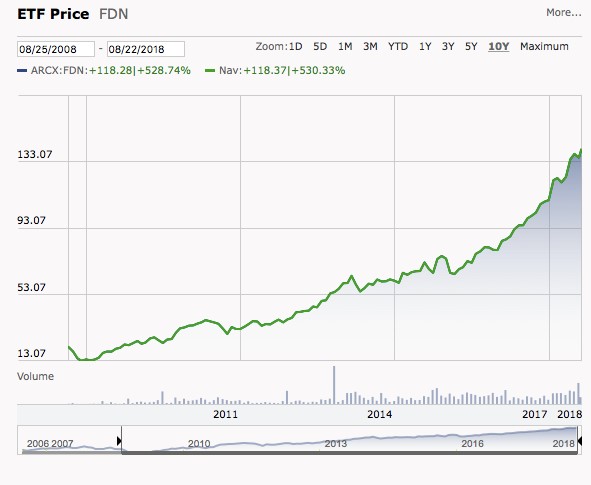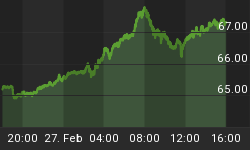It might not be impeachment, or trade wars, or even a tech bubble that leads to the next market crash … one trader told CNBC this week that overinflated ETFs are seeing an unsustainable growth spurt that could come to a disastrous end.
What’s easiest isn’t always what’s best, and ETFs are easy—that’s the attraction for many investors. But when the ETF house of cards comes falling down, passive investors will lose big, according to Michael Horan, head of trading at BNY Mellon’s Pershing.
“It has got to the point now where some ETFs and some indexes are overinflated, bloated levels," Horan told CNBC, warning passive investors that their strategy of wealth protection instead of wealth generation might have blowback for which they are unprepared.
Some kind of shock is coming from somewhere, said Horan, “and if there is a shock […] selling out those ETF positions and in particular bonds … if there is a rush to the door, a rush to the exit, it’s going to be very difficult for the market to take the weight of all that selling”.
It’s a tough pill to swallow right now—in the middle of a tantalizing streak for the S&P 500, which just hit its longest-ever bull-run in history on Tuesday. It’s a bull-run that’s seen gains of 324 percent for the S&P 500. And then, when you consider that ETFs have outdone the S&P 500 by serious margins, Horan’s warning seems like panic-mongering. Related: U.S. Shuts Down Foreign Software Testing
The gains certainly won’t be scaring investors off:
The First Trust Dow Jones Internet Index Fund (FDN)—targeting the internet corner in tech--has gained some 30 percent YTD, and 530 percent in the past decade.

(Click to enlarge)
Source: Morningstar
Invesco NASDAQ Internet ETF (PNQI) has likewise soared, up over 139 percent YTD, and over 500 percent the past decade.

(Click to enlarge)
And the list goes on to include top performers such as First Trust NYSE Arca Biotechnology Index Fund (FBT), iShares U.S. Aerospace & Defense ETF (ITA), First Trust NASDAQ-100-Technology Sector Index Fund (QTEC), Invesco Dynamic Software ETF (PSJ), and many others.
According to ETF.com, investors have pumped $57 billion just into bond ETFs this year, and even fixed-rate ETFs, which account for only a small portion of that, aren’t seeing much by way of outflows.
But investors aren’t just pouring money into ETFs because they’ve all gone passive—in some cases, they’re trying to fill a gap.
Related: Facebook Moves Fast To Purge Discriminatory Ads
We’ve seen this most recently in Turkey. In the midst of a Turkish economic crisis, ETF.com notes, “traders piled en-masse into the $386-million iShares MSCI Turkey ETF (TUR).
Beyond the flashpoint headlines, the fund has emerged as the go-to vehicle for institutional hedging, short-selling profiteering and even price discovery. The wave of inflows speaks to how investors are using the ETF structure to fill a trading void as much as ‘buy the dip’.”
Investors are increasingly choosing ETFs over actively managed mutual funds, too—as evidenced by their withdrawing of some $130 billion from active funds this year, according to ETF.com editor-in-chief Drew Voros. Most of it has gone to ETFs, which have attracted $122 billion YTD, and most of that has been passive.
Passive investors might be thinking that the returns from ETFs are now good enough—but what if Horan is right and there are some dangerous zombies lurking out there while everyone’s hypnotized by a ride that might not have enough juice to keep going.
By Tom Kool for Safehaven.com
More Top Reads From Safehaven.com
















